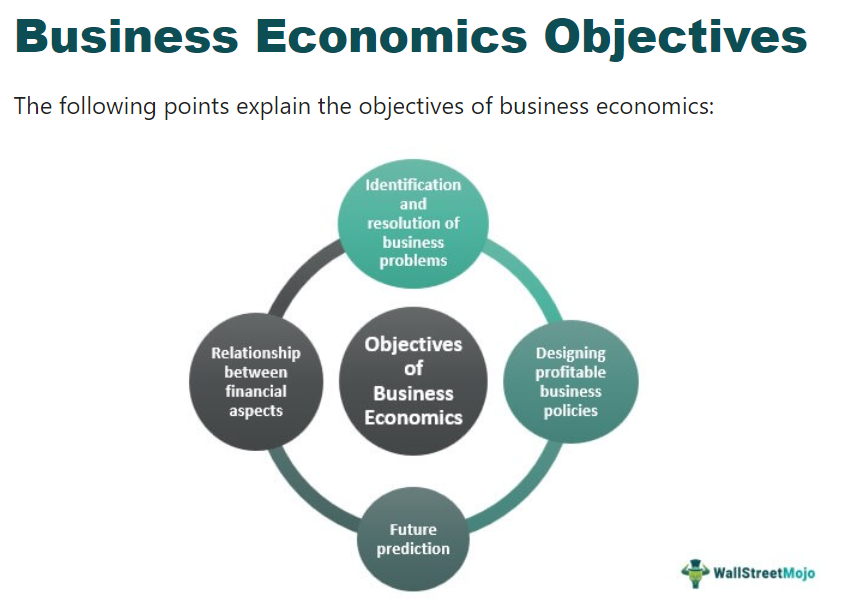
- jaro education
- 9, February 2024
- 11:00 am
Making decisions is a crucial skill in the complex and dynamic world of business. Every organisation, regardless of its size, grapples with the challenge of making well-informed choices to optimise efficiency, profitability, and sustainable growth. Business economics, often called managerial economics, is the essential bridge connecting economic theory with practical business practices. In this comprehensive exploration, we will look deeply into the scope of business economics and dissect the role of business economics in decision making process.
The worldwide instability of the modern digital era has sparked advances across industries with regard to decision-making and the function of business economics. Consider the Executive Program in Business Management at IMT Ghaziabad as the pathway to success in navigating the dynamic business landscape and emerging as an effective leader. Professionals can gain crucial skills from this course, including strategic management and decision-making. The renowned methodology at IMT Ghaziabad, which incorporates simulations and experiential learning, equips future leaders to successfully manage contemporary difficulties, making it an invaluable tool for anyone looking to improve their decision-making skills.
What is Business Economics?
Business economics is the art of harmonising economic theories with real-world business scenarios. It is a pivotal tool for guiding decision-making and future planning by management. To gain a profound appreciation of the significance of business economics, it is imperative to deconstruct its components and elucidate how it operates.
Table of Contents
Economic Theory
Business economics involves an amalgamation of many techniques, including demand-supply analysis, cost evaluation, and consumption scrutiny, to dissect every facet of a business situation. It offers invaluable insights into expanding production and demand by scrutinising the quantity and quality of human or non-human resources. However, in isolation, economic theory often falls short of explaining the erratic growth patterns observed in businesses.
Business Economics
Business economics concentrates on the factors influencing resource production efficiency, both positively and negatively. It stands as the bridge that connects economic theory with pragmatic business policies. This discipline is indispensable for examining financial difficulties and selecting the most prudent course of action to enhance business performance.
Decision Making
For any business, allocating resources is a momentous task, and many alternatives usually beckon. In this context, decision-making necessitates evaluating all available options based on amassed information and selecting the most efficient one. This process transcends economic factors and considers political and social dimensions, rendering it an intricate undertaking.

*wallstreetmojo.com
Scope of Business Economics: Key Areas for Strategic Decision-Making
1. Demand Analysis and Forecasting
Demand forecasting, a pivotal aspect of business economics, involves predicting future demand values. As economic entities, companies convert productive resources into marketable goods. Demand analysis identifies factors influencing product demand, guiding effective demand manipulation.
2. Cost Analysis
A comprehensive study of economic costs, coupled with data from accounting records, provides valuable cost estimates crucial for managerial decisions. Given the inherent uncertainty in cost determination, this analysis aids in mitigating cost-related risks. Effective cost analysis is indispensable for informed decision-making.
3. Inventory Management
Inventory management entails maintaining an optimal stock of raw materials. Striking the right balance is critical; low inventory hampers production, while excessive inventory results in fund blockage. Business economics guides companies in achieving an optimal inventory level for efficient operations.
4. Advertisement
Business economics plays a pivotal role in determining total advertisement costs and budgeting. It assesses the economic impact of advertisements, forming an integral part of decision-making processes. Informed advertising decisions contribute to a company’s overall success.
The Complexity of Decision-Making
The process of making decisions in the business world is intricate and multifaceted. Its fundamental principle is the wise distribution of scarce resources to achieve particular aims and goals. Business economics plays a crucial part in this process by supplying the basic theories, methods, and concepts necessary for deft decision-making. However, the inherent unpredictability and imprecision linked to the corporate environment further exacerbate decision-making difficulties.
An effective strategy is required to arm management with precise analytical techniques. By gathering and interpreting data as correctly as possible, these technologies help to lessen uncertainties and hazards. The idea of “managerial economics” is specifically relevant in this situation. Managerial Economics is the application of business economics to help management make well-informed decisions that improve an organisation’s overall performance and effectiveness. It provides managers with the knowledge and skills necessary to successfully traverse the uncertain and dynamic corporate landscape by acting as a link between economic theory and real-world decision-making. Organisations can use managerial economics to optimise resource allocation and boost market competitiveness.
The Comprehensive Role of Business Economists
Business economists serves as indispensable assets to organisations, facilitating effective decision-making and business planning. Their multifaceted roles encompass identifying problems, providing a quantitative foundation for decision-making, offering advisory services, and enhancing awareness of the business environment. These roles are elaborated below:
1. Identifying Business Problems
A business economist’s role begins with identifying problems. In the evolving business landscape, companies grapple with many issues that can hinder their growth and stability. These problems might manifest as labour disputes, pricing challenges, or regulatory hurdles. The business economist must spot these issues, dive deep into their root causes, and meticulously assess their impacts on the company’s operations. Once armed with a comprehensive understanding, they can propose well-reasoned alternatives and corrective measures for management to consider. Business economists are tasked with designing courses of action that will rectify existing issues and help the company maintain and improve its systems. This proactive approach ensures businesses stay agile and adaptable in a constantly changing market.
2. Providing a Quantitative Foundation
Experience and expertise converge in business economics to deliver a solid quantitative foundation for decision-making and forward planning. Business economists leverage their vast knowledge to evaluate a wide array of factors that affect a controllable and uncontrollable business. This includes examining production, marketing strategies, and organisational models. The ultimate goal is to devise management techniques to boost production efficiency while reducing operating costs. Quantitative analysis is a cornerstone of this process, enabling business economists to present management with data-driven insights. By providing empirical evidence and numerical assessments, they equip organisations with the tools to make well-informed decisions, set realistic goals, and plan for a successful future.
3. Advisory to the Company
Business economists don many hats, one of which is that of an advisor. Their role extends beyond economic matters to encompass a broad spectrum of issues. Drawing from their wealth of experience, business economists offer guidance on critical aspects of a business’s operations. This includes advising on investment strategies, sales promotion tactics, competition analysis, financial health evaluation, labour relations management, and government policy compliance. By their expertise, business economists play a vital role in helping organisations navigate a complex business landscape. They provide essential insights and suggestions, empowering business leaders to make decisions that are not only financially sound but also aligned with the broader interests of the company.
4. Knowledge About the Environment Factors
For a business to thrive, it is essential to comprehend and adapt to its environment. Business economists bridge the company and its surroundings, ensuring that businesses remain resilient and responsive. Understanding the environment involves scrutinising both external and internal factors. On one hand, some external forces and conditions lie beyond an organisation’s control. These can include economic trends, political developments, and regulatory changes. A business economist must know these external factors to help the company prepare for potential challenges and seize opportunities. On the other hand, internal factors firmly within the company’s domain influence operations. These can encompass the company’s internal structure, workforce, and operational processes. An adept business economist is well-versed in optimising these internal factors to minimise costs and enhance efficiency.
Importance of Business Economics
Now that we have gained a profound understanding of business economics and its components, it is time to scrutinise its significance in organisational decision-making.
Conceptual Tools
Business economics equips managers with an arsenal of conceptual tools that expedite the identification, analysis, and resolution of problems. It empowers businesses to make enlightened decisions by applying concepts such as demand and supply analysis, cost structures, and the law of diminishing marginal utility.
Relationship Establishment
It aids in forging connections between various economic factors, such as income, profits, losses, and market structures. This assists managers in making rational decisions and steering their organisations efficiently.
Microeconomic and Macroeconomic Insight
Business economics provides insight into microeconomic and macroeconomic factors. While microeconomics is associated with internal issues within an organisation, macroeconomics assists businesses in understanding and adapting to external environmental factors.
Conclusion
In the contemporary, dynamic business landscape, the role of business economics is nothing short of indispensable. It serves as the connective tissue bridging economic theory and business practice, providing the essential tools for organisations to navigate the intricate terrain of decision-making. Through the assimilation of financial concepts, ideas, and methodologies, business economics empowers managers to make well-informed choices that optimise efficiency, profitability, and the long-term success of their organisations. Ultimately, it is not merely about economics; it is about equipping businesses with the knowledge and tools they need to thrive in an ever-evolving world.







